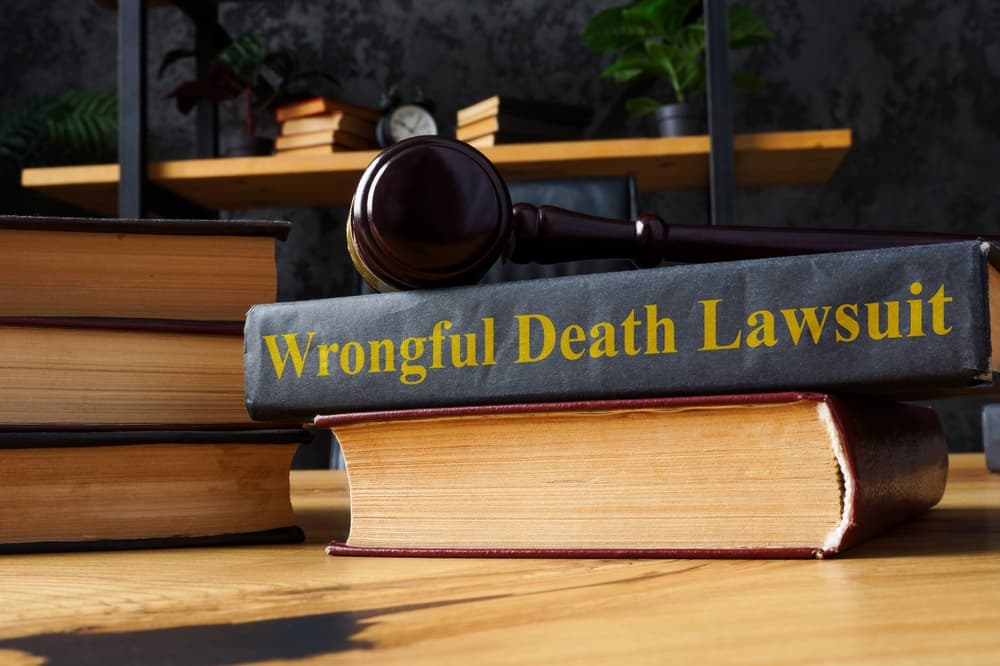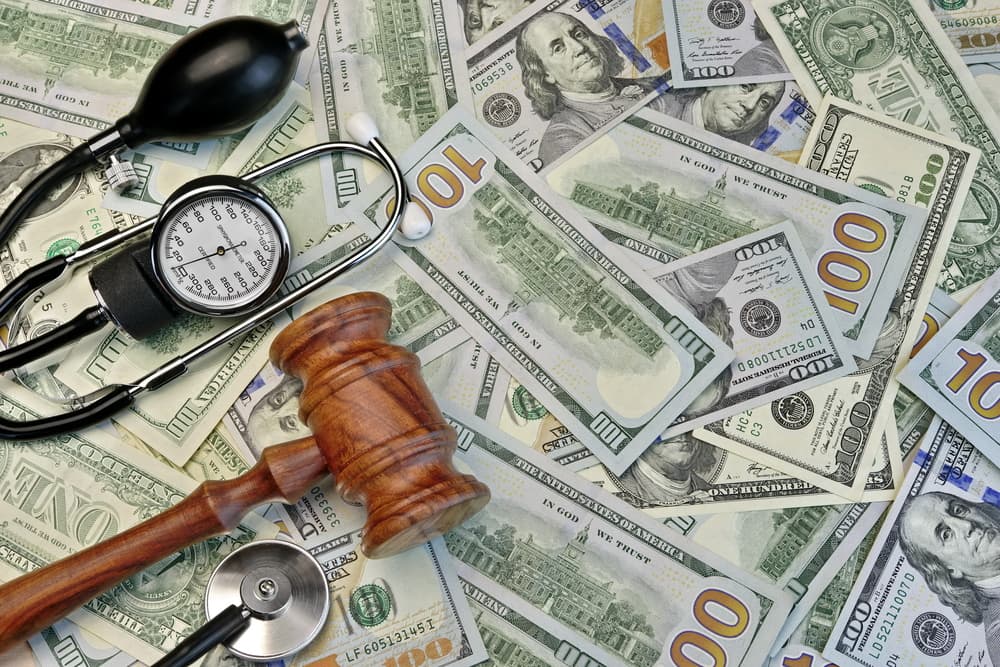
Losing a loved one is always a challenging experience, and it becomes even more devastating when someone else's negligence or misconduct causes the death. When a death occurs due to the actions of another party, it is known as a wrongful death. Proving wrongful death is a complex legal process that requires substantial evidence and legal skills.
If you have lost a family member due to negligence, you should understand what is necessary to prove wrongful death. There are key legal elements required to establish a wrongful death claim, and an experienced wrongful death lawyer can help you through this challenging legal journey.
Reach Out Today!
The Tragic Reality
Before diving into the legal aspects of proving wrongful death, it's important to acknowledge the tragic reality that victims and their families face. Losing a loved one in an untimely and preventable manner can cause immense pain and suffering, both emotionally and financially. While no amount of compensation can bring back a loved one, pursuing a wrongful death claim can provide some form of justice and financial support for the surviving family members.
How Difficult is it to Prove a Wrongful Death Claim?
Losing a loved one is an incredibly painful experience, and the grief can be compounded when their death is caused by someone else's negligence or wrongful actions. In such cases, pursuing a wrongful death claim can help provide some measure of justice and financial support for the surviving family members. However, the process of proving a wrongful death claim can be complex and challenging. Let's take a closer look at the factors that determine the difficulty of establishing a wrongful death claim.
One of the primary challenges in a wrongful death claim is establishing negligence or wrongdoing on the part of the responsible party. A successful wrongful death claim requires showing that the defendant acted negligently, recklessly, or intentionally, resulting in the death of the victim. It can involve gathering and presenting extensive evidence such as accident reports, eyewitness testimonies, medical records, and expert opinions. The burden of proof lies with the plaintiff (the person bringing the claim), which means they must present a convincing case demonstrating the defendant's (alleged at-fault party) negligence or misconduct.
Another factor that influences the difficulty of proving a wrongful death claim is the availability and credibility of evidence. Some cases may have clear-cut evidence that easily demonstrates the defendant's fault, while others require more extensive investigation and expert analysis. The strength and persuasiveness of the evidence can significantly impact the outcome of the case. This is where the experience and skills of an experienced wrongful death attorney come into play. They can gather and present evidence, ensuring that the strongest case possible is built on behalf of the grieving family.
Additionally, wrongful death claims often involve complex legal and procedural requirements. Each jurisdiction has its own specific laws and deadlines that govern wrongful death claims, and failing to adhere to these requirements can result in the dismissal of the case. The family needs to consult an attorney well-versed in wrongful death laws and experienced in the civil legal system. They can guide the family through the process, ensuring all necessary documents are filed correctly and within the designated time frames.
Furthermore, wrongful death claims may face resistance from the opposing party and their insurance companies. These entities may try to minimize the extent of the defendant's liability or dispute the value of the claim. They may employ tactics to delay the proceedings or attempt to shift the blame onto the victim. Dealing with such tactics can be emotionally draining and legally complex. Having a knowledgeable and assertive attorney on your side who understands the tactics used by insurance companies can make a significant difference in the success of your claim.
Proving a wrongful death claim can be a challenging endeavor. It requires establishing negligence or wrongdoing, gathering compelling evidence, navigating complex legal requirements, and dealing with resistant opposing parties. This is why the victims and their families must seek the assistance of a skilled wrongful death attorney. They can provide the reliable guidance, advocacy, and support necessary to maximize the chances of a successful claim. Losing a loved one is never easy, but with the right legal representation, justice and compensation may be possible.
Who Can File a Wrongful Death Claim?
Losing a loved one is undoubtedly one of the most challenging experiences anyone can face. The pain and devastation intensify when that loss is due to another party's negligence or wrongful act. In such heartbreaking situations, it helps to understand who has the legal right to file a wrongful death claim and seek justice on behalf of the deceased.

In general, the right to file a wrongful death claim falls to the immediate family members of the deceased. This typically includes the spouse, children, and parents. In some cases, other dependents or individuals financially supported by the deceased may also be eligible to file a claim.
The laws regarding who can file a wrongful death lawsuit may vary from state to state. Consulting an attorney who handles wrongful death cases is crucial to ensure you fully understand your rights and obligations in your specific jurisdiction. They can guide you through the legal process and help.
The Elements of Wrongful Death
To successfully prove wrongful death, certain elements must be established. These elements vary by jurisdiction, but in general, the following four components need to be demonstrated:
Duty of Care
The first element that must be established is the existence of a duty of care owed by the defendant to the deceased. Duty of care refers to the legal obligation of an individual or entity to act in a manner that avoids causing harm to others. For example, a doctor has a duty of care to their patients, and a driver has a duty of care to other motorists on the road. Proving that the defendant had a duty of care towards the deceased is essential in a wrongful death case.
Breach of Duty
Once established that a duty of care existed, the next step is to demonstrate that the defendant breached that duty. Breach of duty means that the defendant failed to meet the standard of care expected of them. This can involve actions such as negligence, recklessness, or intentional misconduct. Evidence must prove the defendant's actions or inactions directly led to the death of the victim.
Causation
Causation is a crucial element in proving wrongful death. It requires establishing a direct link between the defendant's breach of duty and the death of the victim. It must be demonstrated that the defendant's actions or negligence directly caused or contributed to the fatality. There are different types of causation in wrongful death cases:
- Actual Cause: Also known as cause-in-fact, this type of causation establishes that the responsible party's actions or omissions were the factual cause of the victim's death. In other words, the victim would still be alive if it weren't for the defendant's actions.
- Proximate Cause: Proximate cause focuses on the legal responsibility for the victim's death. It examines whether the responsible party's actions were reasonably foreseeable to cause harm or death to others.
- Intervening Cause: An intervening cause is an event or action that occurs between the responsible party's breach of duty and the victim's death. It must be determined whether the intervening cause was unforeseeable and breaks the chain of causation or whether the responsible party remains legally liable.
Establishing causation can be complex, as it often involves analyzing medical records, eyewitness testimonies, and expert opinions to establish a clear cause-and-effect relationship.
Damages
The final element of a wrongful death claim is damages. Damages refer to the losses suffered by the deceased's surviving family members as a result of the death. These damages can be both economic and non-economic. Economic damages include medical expenses, funeral costs, loss of financial support, and potential future earnings. Non-economic damages encompass the emotional pain, suffering, and loss of companionship experienced by the surviving family members. An attorney must gather evidence and expert testimony to quantify these damages accurately.
Evidence and Documentation Required
Proving a wrongful death case requires gathering and presenting substantial evidence and documentation. This evidence plays a crucial role in establishing the elements of duty of care, breach of duty, causation, and damages.
To successfully prove a wrongful death claim, valuable evidence may include the following:
- Witness Statements: Eyewitness testimonies can provide crucial evidence to support the claim and establish the facts surrounding the death.
- Medical Records: Medical documentation, including autopsy reports and medical records, can help establish the cause and extent of the victim's injuries or medical condition that led to their death.
- Expert Testimonies: In some cases, expert witnesses may be necessary to provide specialized knowledge or opinion relating to the cause of death or the responsible party's actions.
- Photographic or Videographic Evidence: Visual evidence, such as photographs or video footage, can help establish the conditions at the incident scene or the extent of the damages suffered.
- Financial Documentation: Financial records can help quantify economic damages, including medical bills, funeral expenses, and the loss of the deceased person's income.
- Police Reports and Official Documentation: Official reports, such as police reports or incident reports, can provide essential details and establish the factual basis of the accident or incident leading to the death.
- Other Relevant Documentation: Any other relevant documentation that supports the claim, such as safety inspection reports or maintenance records, should also be gathered.
How a Wrongful Death Lawyer Can Help
Proving wrongful death can be a challenging and emotionally draining process. Hiring an experienced wrongful death lawyer can make a significant difference in the outcome of your case. Here's how they can assist you:
Practical Knowledge of the Law
Wrongful death laws are complex and can vary from state to state. A skilled lawyer has in-depth knowledge and understanding of these laws in your jurisdiction, ensuring that your case is handled according to the specific legal requirements. They can guide you through the entire legal process, explaining your rights and options while providing in-depth advice tailored to your situation.
Investigation and Gathering Evidence
Proving wrongful death requires gathering strong evidence and conducting a thorough investigation. A wrongful death lawyer knows what evidence is needed, where to find it, and how to present it effectively. They can work with a team of experts, including accident reconstruction specialists, medical professionals, and forensic experts, to build a solid case on your behalf.
Negotiation and Settlement
In many wrongful death cases, the responsible party or their insurance company may offer a settlement to avoid a lengthy court battle. A wrongful death lawyer will negotiate with the opposing party to ensure that you receive a fair and just settlement. They will fight on your behalf to obtain the maximum compensation possible for your losses, taking into account both economic and non-economic damages.
Court Representation
If a settlement cannot be reached, a wrongful death lawyer will provide skilled representation throughout the litigation process. They will advocate for your rights in court, presenting your case before a judge or jury. With their skills, they will strive to secure a favorable outcome and hold the responsible party accountable for their actions.
Calculating Damages in Wrongful Death Cases

In a wrongful death case, damages are awarded to compensate the victim's family for their losses. Damages can be economic or non-economic, and they aim to provide financial relief and justice to the family.
Economic damages include quantifiable losses such as medical expenses, funeral and burial costs, lost income, and loss of future earning capacity. Non-economic damages, on the other hand, are more subjective and include compensation for pain and suffering, emotional distress, loss of companionship, and loss of consortium.
Calculating damages requires a thorough evaluation of the financial and emotional impact the wrongful death has had on the victim's family. It can be an involved process, making it imperative to work with an experienced attorney who can adequately assess and present the damages owed.
Do You Need to Prove a Wrongful Death Claim? Hire a Compassionate Wrongful Death Lawyer Today
In conclusion, proving wrongful death requires establishing the elements of duty of care, breach of duty, causation, and damages. With the help of an experienced personal injury attorney and the appropriate evidence and documentation, victims and their families can seek justice and hold the responsible party accountable for their actions or inactions. Losing a loved one is an immensely difficult experience, but seeking legal recourse can provide some closure and financial relief to the grieving family. Reach out for legal help today.